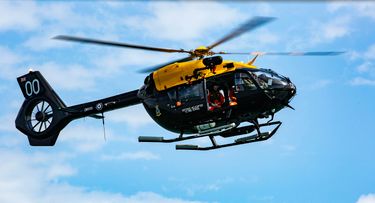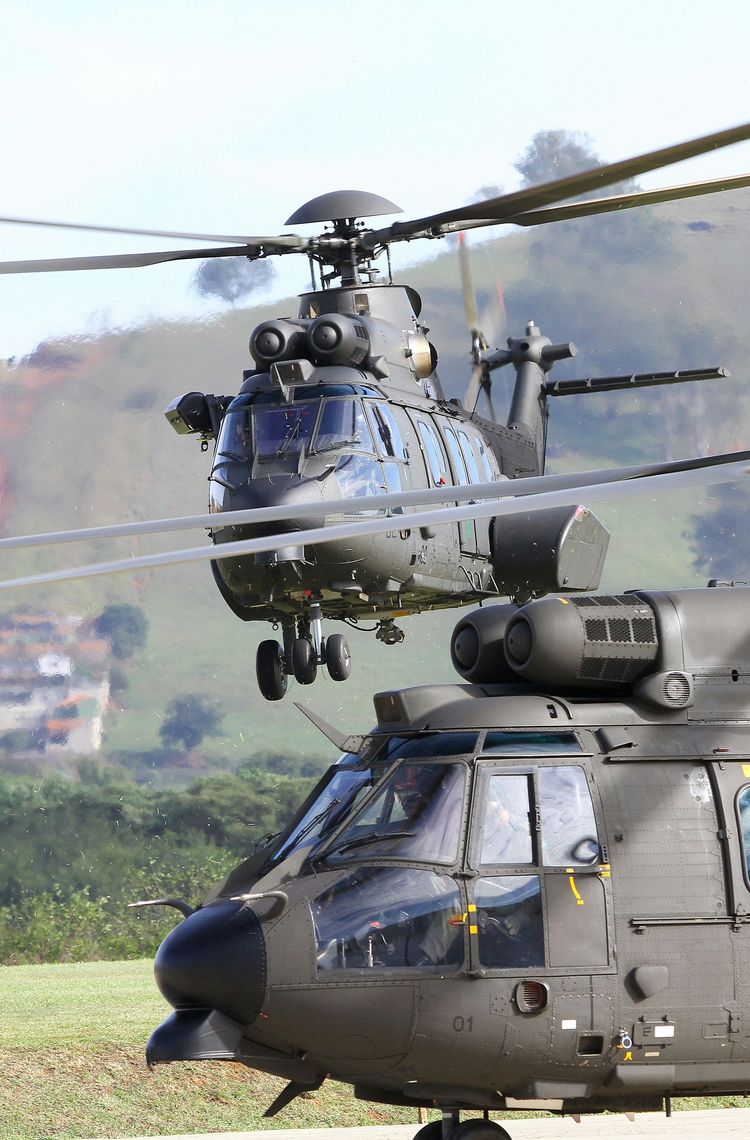Support contracts are popular and well known in the civil sector and are gaining ground in the military sector. Let’s not forget that the first RBH (Repair by the Hour) and PBH (Parts by the Hour) contracts were signed over 35 years ago with the French armed forces. The success of these contracts has never waned, and today more than half of all Airbus helicopters enrolled with global support contracts come from military fleets.
Forecasts even predict an increase in the number of contracts in the years to come, which is logical: everything that global support contracts are renowned for in the civil sector, starting with the high fleet availability and increased asset values they provide, is also true for the military sector.
Increased availability
All Airbus Helicopters offers have something in common: they are adapted to the users’ needs, whether they are civil or military, small or large, near or far. They cover the supply of spare parts, inventory management, maintenance, technical support, training… In short, every aspect of how a helicopter is used.
End users can benefit greatly from such contracts, by transferring several levels of responsibility to Airbus Helicopters. In return, the manufacturer accepts specific performance objectives and obligations to produce results. “In the long term, the switch from multiple, sometimes uncoordinated contracts with several entities to a single contract with a single integrator also represents a considerable advantage for the customer. They gain visibility in terms of budget management and better aircraft availability,” says Christoph Zammert, Executive Vice President of Customer Support & Services at Airbus Helicopters.
The Brazilian armed forces, for example, rely on a PBH contract signed in 2018 for the H225Ms used by the country’s three forces (37 aircraft delivered to date of 50). The contract guarantees the on-time supply of parts (new or repaired), using inventories of Airbus Helicopters and its subsidiary Helibras. The security of having parts available without having to worry about managing inventories makes it easier to schedule periods of maintenance and optimise aircraft availability. Users also benefit financially as they do not have to pay for their inventories.
“This type of support contract offers a lot of advantages, from both an operational and a logistical point of view, and helps increase aircraft availability,” confirms Rear Admiral Paulo Renato Rohwer Santos, who adds: “Procuring parts with this type of contract is more efficient than any traditional approach.”
The RBH contract can replace or even complement the PBH contract. It allows the end user to rely on their own parts reserves and not depend on parts previously used by other armed forces. With the RBH, Airbus Helicopters guarantees optimal inventory management as well as the repair and maintenance of parts and their availability when needed.
All over the world
Offers have been diversified in response to customer needs, resulting in the global HCare offer that today combines the following supports: the aforementioned supply of spare parts, but also the comprehensive maintenance of aircraft, training, technical solutions and flight operation tracking. All of this is managed by a range of connected services and backed by Airbus Helicopters’ well-organised worldwide network with four logistics centres and six regional warehouses.
The Japan Maritime Self-Defense Force (JMSDF) has been using 15 H135s for the ab initio training of naval helicopter pilots since 2010. In October 2016, it opted for an HCare Smart contract. Since then “we have been able to reduce costs and simplify our management,” Captain Goto explains, who also adds: “Spare parts are delivered regularly; aircraft availability has improved and our situation has really changed for the better since the implementation of HCare.”
The helicopter division of the UK Military Flying Training System is also a great British example: the fleet of 29 H135 Juno and seven H145 Jupiter helicopters used by Ascent Flight Training to train military pilots is covered by a combined RPH and PBH contract with additional services such as obsolescence management. Ascent General Manager Harry Palmer says: “During the initial stages of the UKMFTS contract, the AHUK support has been excellent with good aircraft availability. As the project builds to full capability, we are confident that this platform reliability will be a key component of our ongoing success.”
All these examples are now becoming the norm, as around 1,250 military aircraft are currently covered by global support contracts in various capacities. Furthermore, 95% of by-the-hour users choose to renew their contract when it expires, a clear sign that the formula meets a real need.

